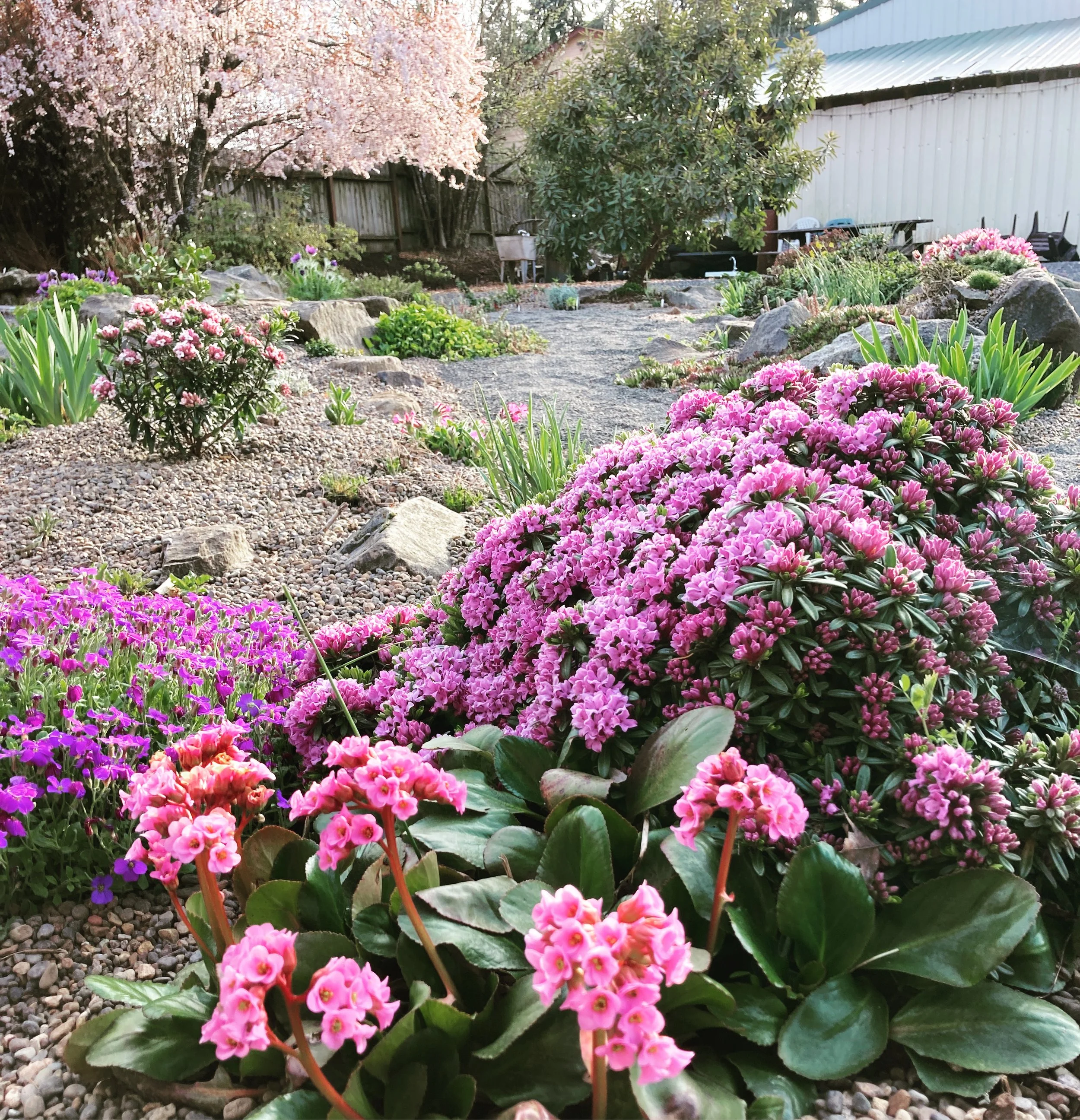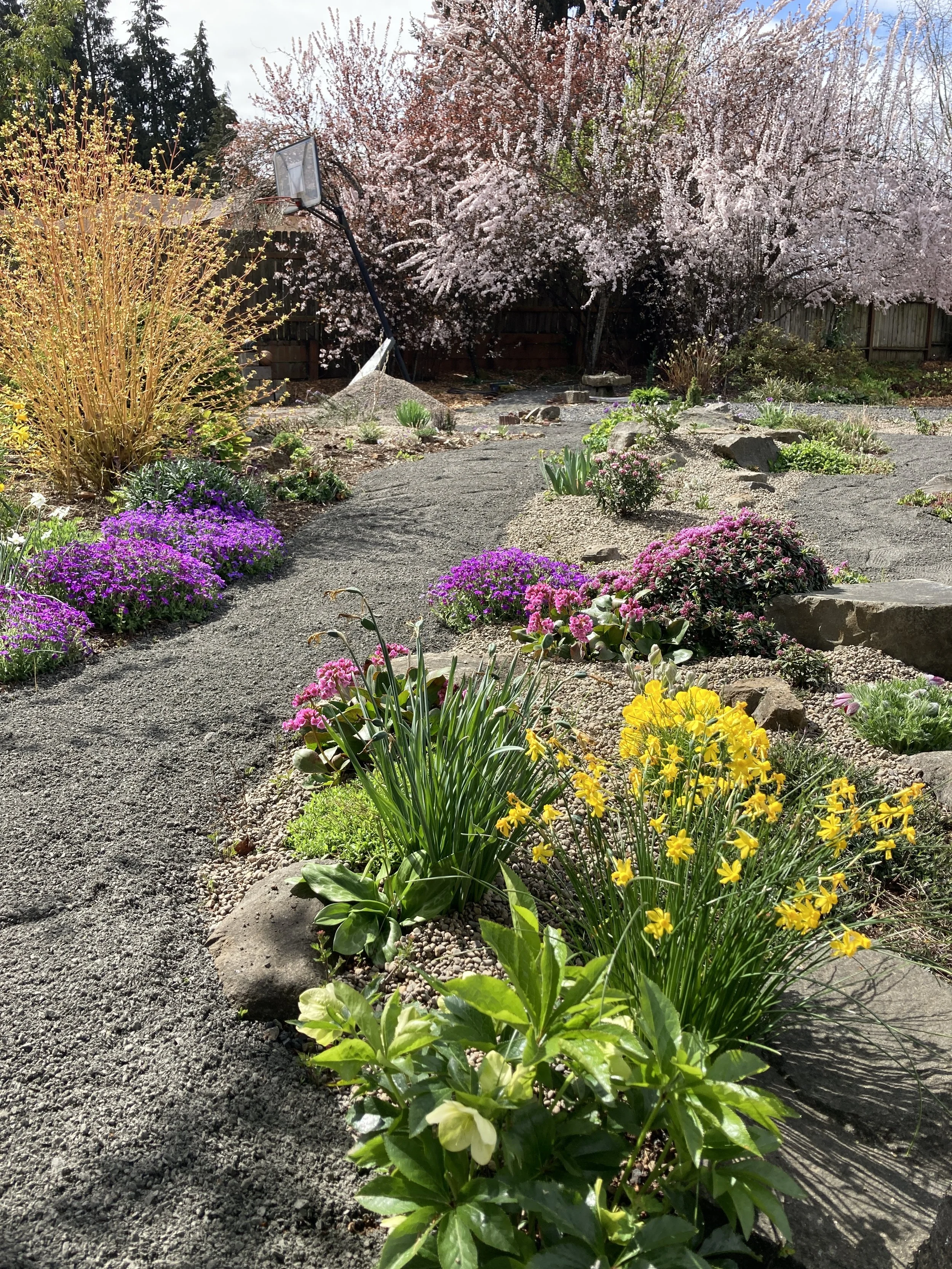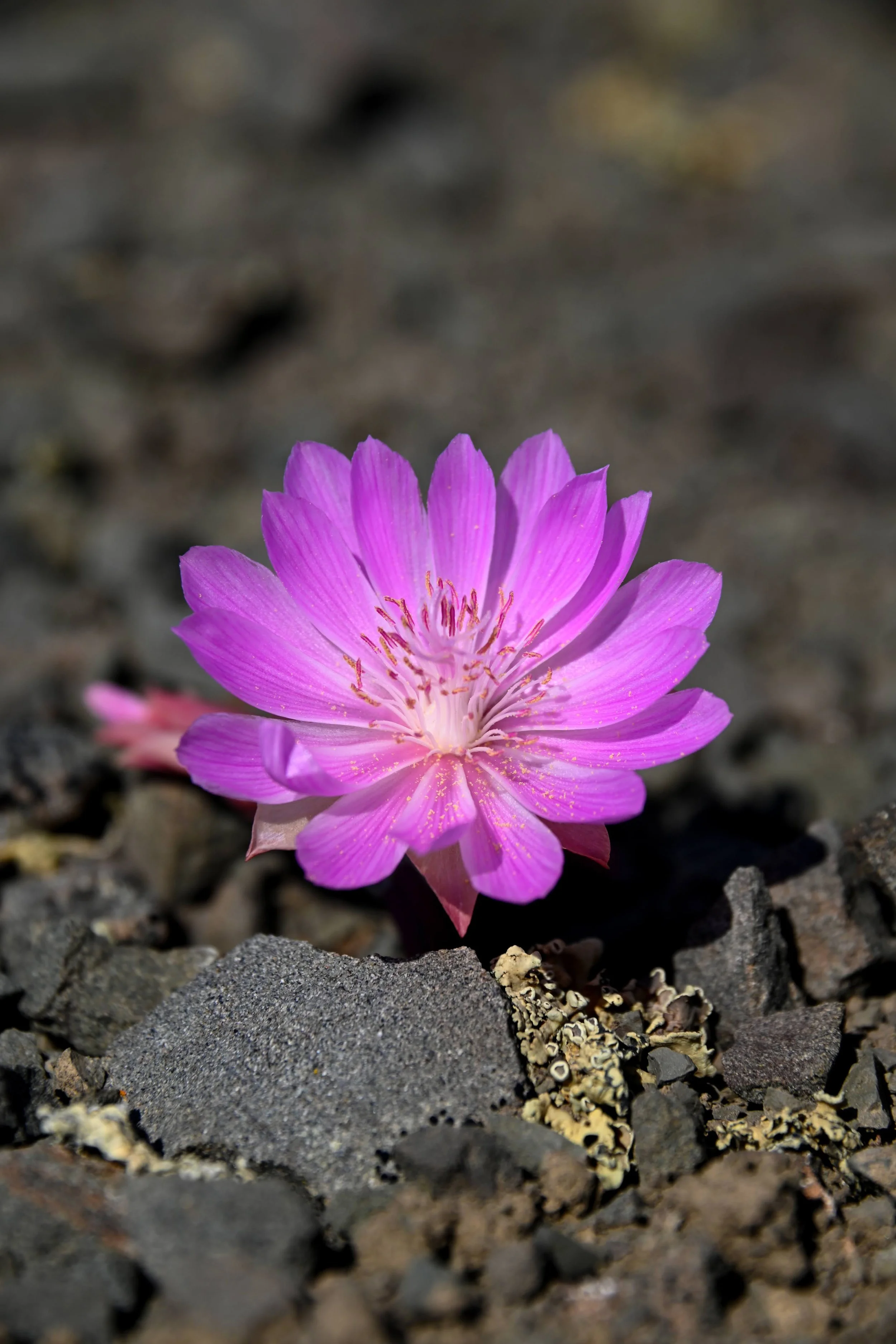

Daphne 'Lawrence Crocker'
A classic miniature daphne with a devoted following, Daphne ‘Lawrence Crocker’ was introduced by the late Lawrence Crocker of the Siskiyou Rare Plant Nursery in southern Oregon—one of the most influential alpine and rock garden nurseries of the 20th century. Selected from a cross involving Daphne arbuscula, this cultivar was named in his honor after his passing, and it remains one of the finest small daphnes ever raised. It seems to have lost the moniker X medfordensis over time but I like that because it is homage to Medford, Oregon.
It forms a tight, mounded cushion of small, glossy evergreen leaves, rarely exceeding 10-12 inches in height and spreading slowly with age. In late spring to early summer, it becomes completely covered in richly fragrant clusters of rosy-purple flowers that attract both admiration and bees in equal measure.
Ideal for troughs, raised beds, or the front of the rock garden where perfect drainage and full sun can be assured. Surprisingly hardy and long-lived when kept dry through winter and never overfed. Hardy to about USDA Zone 5.
A true gem of from a solid Oregon nursery heritage—compact, enduring, and perfumed with the legacy of one of the great alpine plant pioneers.
A classic miniature daphne with a devoted following, Daphne ‘Lawrence Crocker’ was introduced by the late Lawrence Crocker of the Siskiyou Rare Plant Nursery in southern Oregon—one of the most influential alpine and rock garden nurseries of the 20th century. Selected from a cross involving Daphne arbuscula, this cultivar was named in his honor after his passing, and it remains one of the finest small daphnes ever raised. It seems to have lost the moniker X medfordensis over time but I like that because it is homage to Medford, Oregon.
It forms a tight, mounded cushion of small, glossy evergreen leaves, rarely exceeding 10-12 inches in height and spreading slowly with age. In late spring to early summer, it becomes completely covered in richly fragrant clusters of rosy-purple flowers that attract both admiration and bees in equal measure.
Ideal for troughs, raised beds, or the front of the rock garden where perfect drainage and full sun can be assured. Surprisingly hardy and long-lived when kept dry through winter and never overfed. Hardy to about USDA Zone 5.
A true gem of from a solid Oregon nursery heritage—compact, enduring, and perfumed with the legacy of one of the great alpine plant pioneers.








